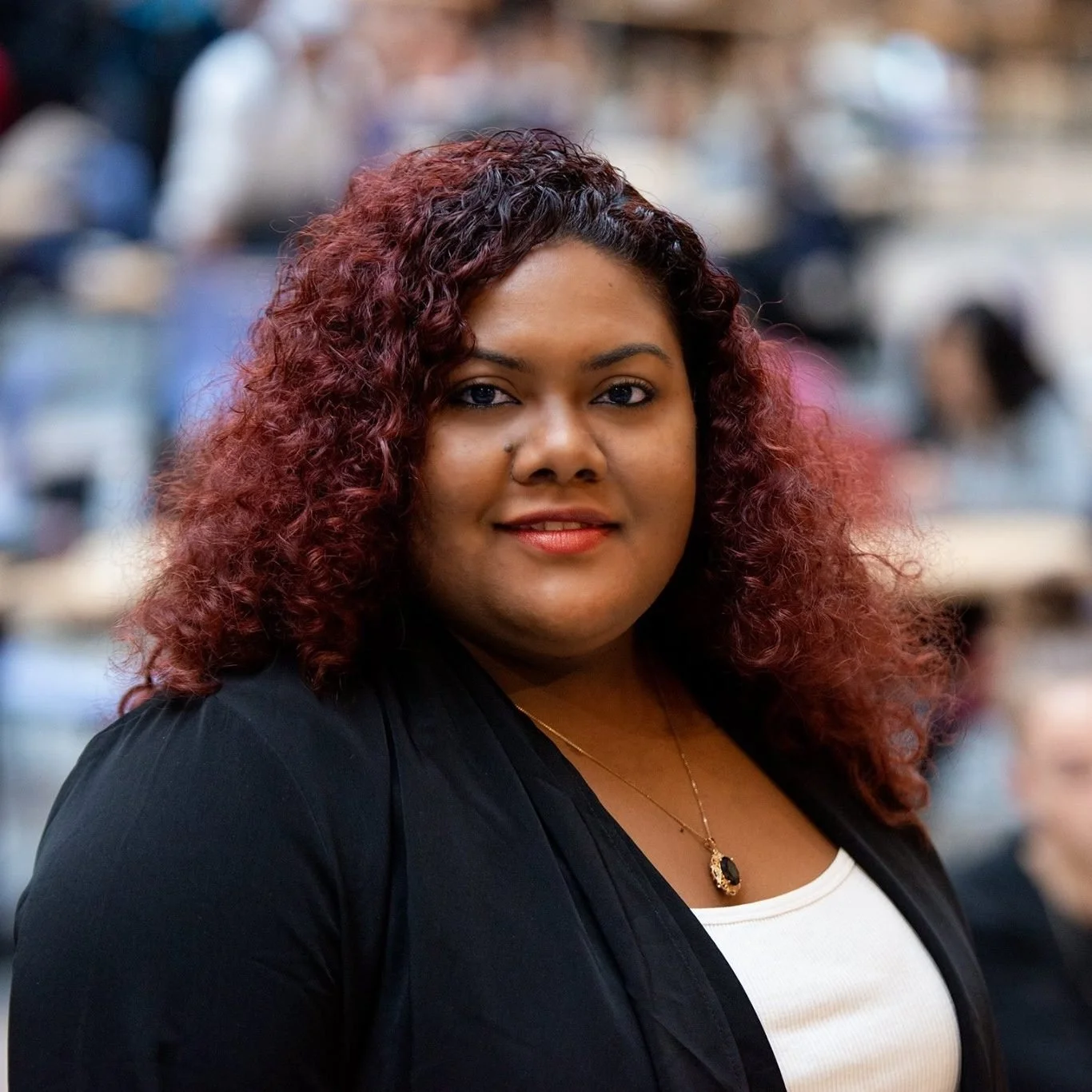About the projecT
The Proclaiming Our Roots project is aimed at honoring the histories, realities, stories and experiences of people who are of African diasporic and Indigenous ancestry, and who reside on Turtle Island. With over 400 years of African diasporic presence in Canada, originating from the British North American slave trade (Cooper, 2006; Di Paolantonio, 2010), relationships developed between Indigenous and Black people. Such relationships between African diasporic and Indigenous peoples were feared by colonialists because both communities experienced shared, as well as distinct forms of colonial oppression, conflict, and the need for survival. These unions became a central form of resistance for some African diasporic and Indigenous communities (Brooks, 2002; Lawrence, 2004). Indigenous and Black unions are common within many communities such as the Cherokee, Creek, Lumbee, Creole, and Seminole peoples (Brooks, 2002; Jolivette, 2007; Sturm, 2002). Similarly, Black-Mi'kmaw intermarriage in Nova Scotia proliferated as a form of resistance to extermination policies against Mi'kmaw people and the marginalization of Black loyalists (Lawrence & Dua, 2005)
The Proclaiming Our Roots project afforded individuals, who all identified as having Indigenous and Black ancestry, the opportunity to create their own digital stories or personal videos. Digital stories combine sound, image, video, and text to convey personal experiences. In centering their stories and voices, and sharing their testimonies on their terms, participants reverse the colonial gaze, exhibiting their self determination, and they highlighted topics that were important to them such as identity politics, lateral violence and discrimination, and health and wellbeing.
Who we are!
We are a group of African diasporic, Indigenous and allied community-based researchers, artists, activists, and social service providers from both the Greater Toronto Area in Ontario, and the Halifax and Dartmouth areas in Nova Scotia, Canada.
We engage with arts- and community-based research to illuminate the stories of community members and to counter colonial forms of oppression. We acknowledge the stories, experiences and perspectives of community members as valid forms of knowledge, as we understand that stories and testimonies are important modalities for healing and for speaking truth to power.
Ciann Wilson - project team
Ciann L. Wilson is the Principal Investigator for the Proclaiming Our Roots project and an Associate Professor in Community Psychology at Wilfrid Laurier University. Ciann is the Canada Research Chair in Community-Based Research, Ethics and Well-being in recognition of her impactful research with and alongside equity-deserving communities. Ciann is also the 2023 recipient of the prestigious Robbins-Ollivier Award for Excellence in Equity.
Ciann is of Afro, Indo, and Euro- Jamaican ancestry, and has over 15 years of experience working within Black, Indigenous, and racialized communities, with her areas of interest building off community-engaged work to include intersectional and anti-/de-colonial frameworks, African disaporic and Indigenous community health, mental, sexual and reproductive wellbeing, community development and community-based research. Using a variety of research methods, including art, digital media and storytelling, Wilson’s research spotlights the lived realities and worldviews of communities to enhance their self-determination, health and well-being, including disabled, HIV-positive, 2SLGBTQ+, Muslim, precariously housed, substance-using, Black and Indigenous peoples.
Sarah Flicker - project team
Sarah Flicker is a Co-Principal Investigator for the Proclaiming Our Roots project, and is an associate professor at the Faculty of Environmental Studies at York University. Sarah has a track record of success in engaging communities in community-based participatory action health research with racialized and Indigenous communities. Sarah has spent the last ten years working with Indigenous youth in Canada on a variety of HIV prevention research projects. Her allyship is a key component of the POR project.
Ann Marie Beals - project team
Ann Marie Beals (nek'm/they/them) is a Two-Spirit Indigenous-Black L’nuwey – a mixed-blood African Nova Scotian and First Nation Mi’kmaq who hails from Mi’kma’ki territory. Ann Marie is a faculty member in Community Psychology at Wilfrid Laurier University. Ann Marie is a story sharer in the Proclaiming Our Roots project. Stories from the Proclaiming Our Roots project revolve around Afro-Indigenous identity and relationships with Indigenous and Black communities, as well as Truth and Reconciliation. Ann Marie’s research explores the health and wellbeing of Afro-Indigenous communities in revealing the effects of colonial legacies of oppression and violence, ongoing structural inequities, and lack of acknowledgement of Indigenous-Black identity in the canadian settler nation-state. Ann Marie shares Afro-Indigenous voices in stories of resilience, strength, self-assertion, and consciousness-raising. These sacred stories explore the lived experiences and realities of the wellbeing of Indigenous-Black communities.
Kayla Webber - project team
Kayla Webber is a doctoral student in the Department of Social Justice Education at the Ontario Institute for Studies in Education, University of Toronto. Her research interests are housing precarity, land-based education, Black and Indigenous communities, models of wellness, and storytelling. Kayla Webber's dream project uses social determinants of health and storytelling to co-create with communities around housing as a safe, healthy, cultural, healing, connective, communal, and generational space - housing as a home, not a structure—Webber's co-dreaming endeavors to create tangible solutions with various communities. Webber aims to contribute to developing inclusive, grounded, and collaborative thought-projects with grassroots organizations that truly implement the concerns and desires of Black, Afro-Indigenous, and Indigenous communities. Webber's work acknowledges that housing is not merely a place to live but a space that influences individuals' health, well-being, identities, teachings, land, waterways, non-human kin, kinship, and community connection.
Anique Jordan - Artist facilitator
Anique Jordan is the artist facilitator for the Proclaiming Our Roots project, and holds a Masters of Environmental Studies degree from York University, specializing in photography, auto-biography and Black Canadian histories. She is a community-based artist with over a decade of experience working within Black communities in multiple locations across Toronto and the Caribbean. She has designed and facilitated workshops in which artistic processes centre around building family archives and creating, through written form and assemblage, our own history. Anique has been recognized for this work through fellowships,awards and internships globally. Anique works intimately with communities and individuals to document family stories as central and important to the makeup of Canadian history. Her own family story extends through the war of 1812, American slavery, to Caribbean and Canadian immigration. Anique’s work has been exhibited at the Art Gallery of Ontario, Gallery 44 and at various national conferences. As an artist facilitator, she will work closely with the research team to design a digital oral history process centering on the claiming and voicing of our own story as a critical component of art production and the creation of both public and personal archives. Anique is technically trained in multimedia digital production.
Melisse Watson - Graphic illustrator
Melisse Watson is the Graphic Illustrator for the Proclaiming Our Roots project. Melisse is a queer, non-binary Black diasporic afro-futurist with Aniyunwiya ancestry dedicated to rebuilding and supporting health care strategies within Black/&Indigenous communities. As a Registered Practical Nurse, earthworker, artist and advocate, restoring relationships through conflict or harm recovery is central to their focus and efforts of self and communal determination. Melisse is inspired by the heart and relationship work of adrienne maree brown, alexis pauline gumbs, octavia butler, amber williams-king and beyond. They find motivation from the regeneration efforts of seeds, mycelium, and the potential for change, utilizing art as a tool of the archive, a placemaker of the present and a coded language for the future of Black and brown lives. As an accomplished creator, facilitator, grower, and dreamer, Melisse is committed through all they pursue; to integrity, care work, and the collective recovery.





